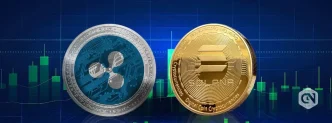Blockchain technology was launched over a decade ago in 2009 being an underlying platform for Bitcoin. However, it has become equally popular, if not more, than cryptocurrencies.
Research and studies on the innovative tech over the years have yielded out possibilities, which even Satoshi Nakamoto wouldn’t have thought about. Especially, in the last couple of years, the technology has received tremendous recognition from governments across the globe, as well as from giant business corporations, including IBM, HSBC, JPMorgan Microsoft and Intel.
The technology has now got several sectors under its wings, right from agriculture to healthcare, virtual gaming to media, and banking to foreign exchange. Mass adoption of blockchain continues to revolutionise business processes across industries. However, a need for innovation in the space is being felt for the past few months. Especially, with the growing popularity of modern techs like Artificial Intelligence, Machine Learning and Internet of Things, need for newer developments in blockchain technology is deeply felt.
Experts have predicted that the introduction of 5G mobile cellular data connection can help blockchain in further development. The latest generation of mobile data is all set for launch anytime soon. 5G connection boasts data connection with unheard speeds. And as more and more people start entering the mobile space, the use of 5G will grow significantly.
Integration of blockchain with 5G is still quite far, but experts are already suggesting that it will possibly create great economic value. Especially, with mobile phone-based payment solutions becoming the norm, that’s one area which can be completely revolutionized by the two innovative techs collaborating.
Also, 5G is expected to bring down latency considerably, which will further help blockchain to achieve shorter block times, resulting in improved scalability. These features will help in projects related to Internet-of-things (IoT), a futuristic concept which has been gaining significant traction recently.
Blockchain is already being used by companies in Europe for developing sensors for driverless cars, through machine learning. 5G can speed up the underlying blockchain in sensors for making them more secure and safe. Apart from these several blockchain based projects aimed at creating smart cities, smart homes, and other similar concepts, which heavily depend on IoT.
Transparency, security and immutability are the main characteristics of the blockchain technology, while 5G will be more focused on data speed, sizeable data transfer and low latency, which are what the blockchain space somewhat lacks.
The big corporations which have taken a keen interest in the Distributed Ledger Technology, have the capital and infrastructure to conduct research on the tech. Especially, tech giants like IBM, TCS and Microsoft are likely to test the integration of blockchain with 5G. Demand for blockchain has been growing exponentially in the past few months. In 2018, investment companies poured in over $5.2 billion in blockchain based start-ups, an amount significantly more than the preceding year’s $1.5 billion.
Banking giants like HSBC and JPMorgan have also established their respective blockchain divisions. HSBC alone executed forex transactions worth over $250 billion last year using blockchain. As the use of blockchain expands, the amount of data transfer will also go up.
Currently, the amount of data being transferred is much less than what the future holds. This is a potential problem for blockchain as carrying that much data will hinder block speeds, creating latency. Integration with 5G connectivity will help solve this issue, as the latest generation mobile connection tech is capable of transferring huge amount of data at lightning speed.
The future of technology heavily relied on data management, therefore, blockchain and 5G integration can create wonders in tech-driven industries.







